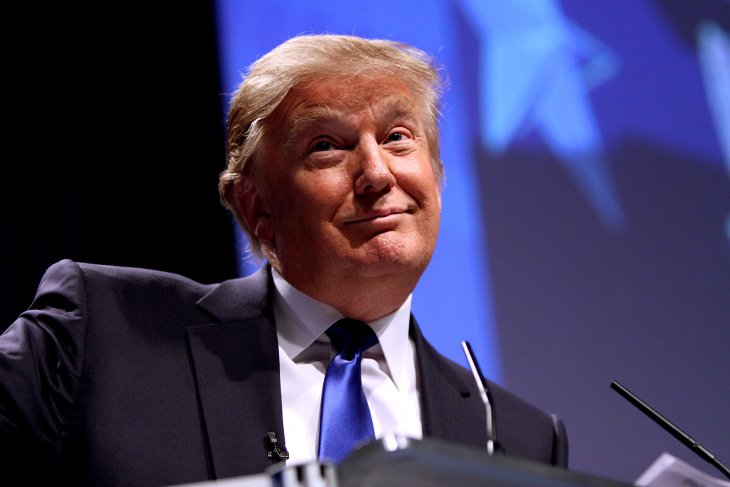Decency, humility, and thoughtfulness are core virtues in a civilized society. Now we need to fight for them.

Donald Trump has, with his rhetoric, lowered the threshold for moral decency so far it is downright scary. Photo: Gage Skidmore, Wikimedia Commons
«Political correctness» can be a sinister labeling for common decency. A wish to preserve dignity and openness, and to avoid willfully disrespecting others’ beliefs or characteristics, should after all be a natural part of all public communication. In 2016, values such as these are under attack in a way they have not been for a long time. In social media, defense of respect and tolerance is increasingly being labeled as a sign that one does not dare say things as they really are, and that one is thus “politically correct”.
It is not hard to understand why we are seeing this trend. After all, immigration and meetings between cultures represent not only opportunities, but also potential and significant tensions. Terror attacks and extremism – from 22 July 2011 in Norway, to terror attacks in Paris, Brussels, and Berlin – create solidarity, but also grief, anger and confusion. Fewer jobs and a more uncertain future naturally engender negative reactions and a wish for someone just to “fix it”.
That, however, does not mean that we should accept a way of talking to and about each other which hatefully targets or discriminates all those who are different or have other national origins, for example, on behalf of a “white”, “clean” and “untainted” Norway. Yes, we should understand where such ways of speaking come from, but to be able to explain and understand something – and indeed take it seriously – does not necessarily make those statements right, relevant or morally acceptable.
I would like to underscore two things we need to be particularly mindful of:
The first is, as already indicated, a shift in the language we accept and use. As a staunch defender of the freedom of expression, I am inherently skeptical towards any form of public censorship. For a host of reasons that it is not possible to cram into this short article, I have myself often warned of the dangers of a sterile and overly “nice” public debate. And let me also say unequivocally: a free press and protection of those who dare to challenge existing power structures and hierarchies are more important than ever.
Freedom of expression is, however, no excuse for allowing an ever-greater acceptance of pure hatred and disdainful stigmatization getting a better foothold in the public debate. Just to take one example: Several increasingly professional-looking websites now publish lists of people with foreign backgrounds who should be sent out of the country (presumably when ‘the right people’ come to power). Other lists include the names of ‘suspicious’ Norwegians who are ‘destroying’ Norway by subversively working for the Islamization of the country. I know several fine people on both kinds of lists. The tone, the message, and the underlying ideology scare frighten me.
Messages such as these are now moving closer to the mainstream. Yet it is often claimed that they are suppressed by «the politically correct», who push the critical and more alternative voices out into a moral void. According to that this logic, it is a brave thing to say, for instance, that «Muslims are dangerous to Norway».
For the sake of our whole society and future generations, we must take a stand against this trend. Of course there should be room for many different (and critical, by all means) positions on immigration, religion and culture. Of course, it is moronic to brand any alternative viewpoint as immoral. Disdainful, morally superior know-it-all attitudes are always bad for constructive debate (and create allegations of political correctness!).
But when a witch hunt begins for a certain group of people – because of the color of their skin, their religion, or their place of origin – danger looms. All complexity, all nuances, and not least the inherent value of the individual are so easily swept away in a furious mix of uncertainty and nationalistic self-righteousness. President-elect Donald Trump has, with his rhetoric, lowered the threshold for moral decency so far it is downright scary. Let us not believe we are immune elsewhere in the world.
And here we arrive at the second point I believe we should be mindful of: We must never forget that to be a compassionate fellow human being is all about acknowledging differences, both within one’s own society (and indeed within one’s own self) and between societies. At the very core of why we celebrate Christmas, and in all of the New Testament, we find the stories of the despised and the outcasts. Lepers, Samaritans, unchaste women, and all others who were deemed unwanted by society were met by Jesus of Nazareth as he himself had been met by a few people at his birth: as someone who is welcome, and unique.
This is by no means naive, political correctness. Quite the opposite: It is common decency. And we need to protect it in 2017, no matter our political allegiance.
Happy Christmas!
- This text was published in Norwegian in the daily Dagens Næringsliv 24.12.2016: ‘Et varsko for 2017‘
- Translation from Norwegian: Iver Kleiven